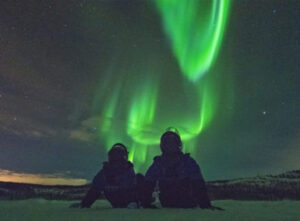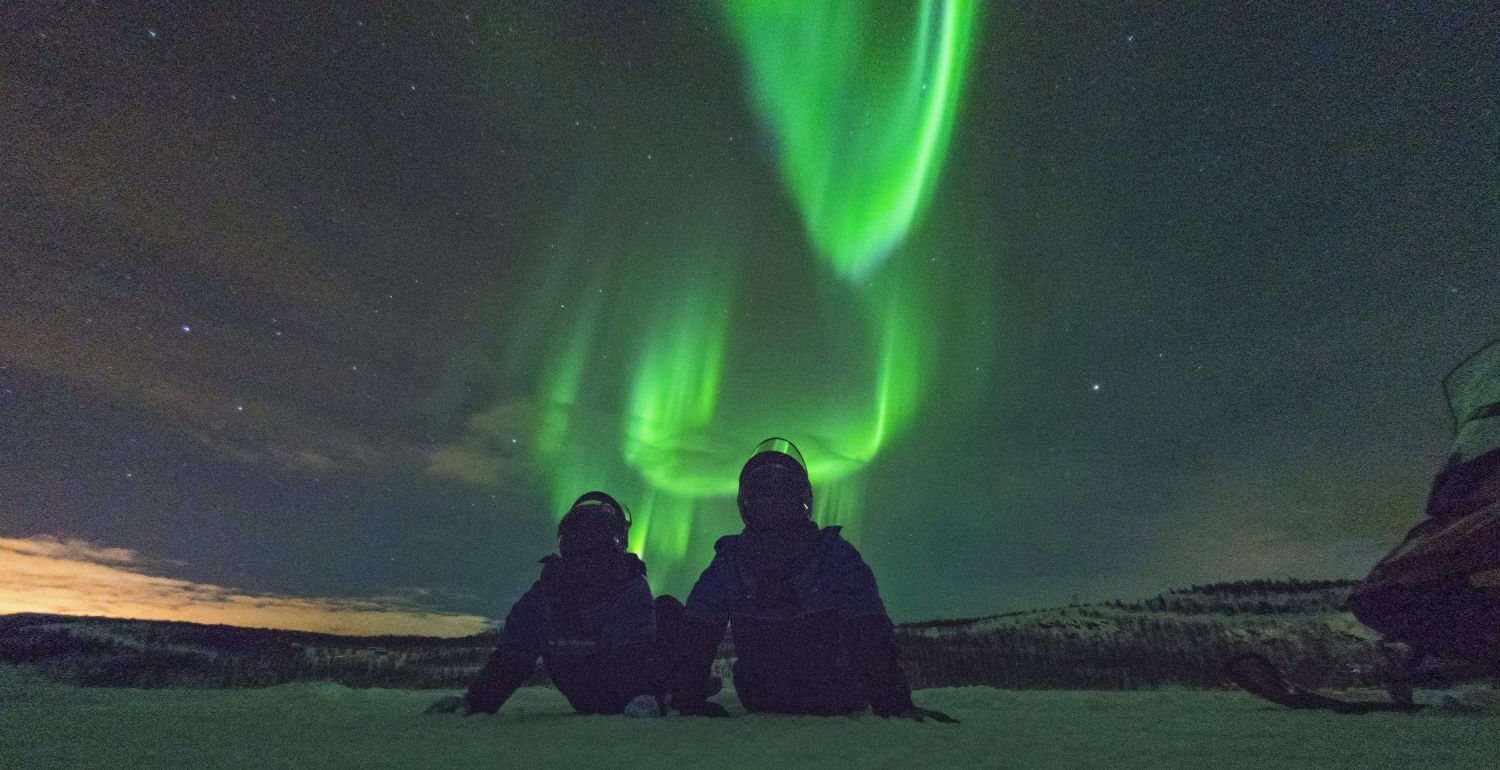
This Northern light package is ideal to explore the area and catch the...
Read More
Northern lights are the most amazing thing I’ve ever seen. Even though I have lived in Kirkenes for many years, the northern lights are a great experience. The lights have many names but the most common name is northern light or Aurora Borealis.
When to see the Northern Lights and what time of year is best?
To see the Northern Lights you only need 2 requirements: the sky must be clear and it must be dark. Did you know that the Northern Lights also appear in summer? Unfortunately, you can’t see them because of the bright nights. The best times are therefore the months when it gets dark again in the evening and at night. This is the case from the end of August until end of March.
September and October are good months for Northern Lights, and are particularly suitable for those who don’t feel like traveling north in the dead of winter. More info about autumn here: www.bookingkirkenes.no/autumn/
The chances of seeing the Northern Lights are of course best in the darker season of December, January and February with many hours of darkness. But March is also suitable. From April the nights are already too bright and the chances are getting smaller.
The climate in Kirkenes is perfect for seeing the Northern Lights. We have very little fog, rain and storms. Winter weather is stable and often very clear. The reason for this is the location of Kirkenes and the continental inland climate. This makes Kirkenes one of the best places in Norway to see the Northern Lights.
Another advantage is the low population density. Kirkenes is a small town with around 6500 inhabitants. The light pollution is low and you can get out of the city very quickly, escaping the artificial light. But even in the city you can often see the Northern Lights.
Those who would like to see the Northern Lights should spend several days north of the Arctic Circle, and preferably a few days in Kirkenes. We offer various Northern Lights tours in the evening: by snowmobile, dog sled or bus. Or you book a few days outside of Kirkenes, for example in the Pasvik valley where there is less light pollution. We are happy to help you plan your Northern Lights tours.
You can check the probability of northern lights in Kirkenes here: www.norway-lights.com/destinations/kirkenes/
Scientific explanations about the Northern Lights can be found here:
https://www.asc-csa.gc.ca/eng/astronomy/northern-lights/what-are-northern-lights.asp
https://forskning.no/astronomi-historie-meteorologi/ (only in Norwegian language)
https://www.planet-wissen.de/natur/polarregionen/polarlicht/index.html (only in German language)
https://www.geo.de/geolino/natur-und-umwelt/1186-rtkl-interview-wie-polarlichter-entstehen (only in German language)
This Northern light package is ideal to explore the area and catch the...
Read MoreThis winter package includes 2 overnight stays in Kirkenes and the most exciting...
Read MoreThis package is packed with soft adventures and a personal touch. If you...
Read MoreA once in a lifetime experience: Overnight stay at the Snowhotel which is...
Read MoreOvernight stay in a warm and cosy high standard cabin at the Snowhotel....
Read MoreEvening tour by snowmobile, hunting for the Northern lights in a fascinating winter...
Read MoreTour by bus to hunt for the Northern lights in the surroundings of...
Read MoreEvening Northern light snowmobile tour with local guide. Tour goes in spectacular landscape...
Read MorePasvikturist AS
Dr. Wesselsgate 15B, 9900 Kirkenes
Phone: +47 78 99 50 80 / +47 415 44 346


Pasvikturist AS
Dr. Wesselsgate 15B, 9900 Kirkenes
Phone: +47 78 99 50 80 / +47 415 44 346